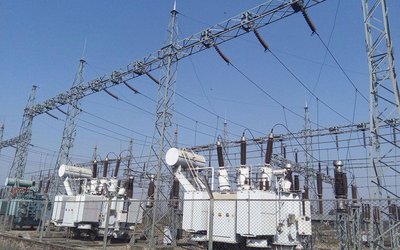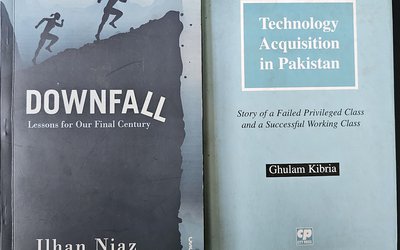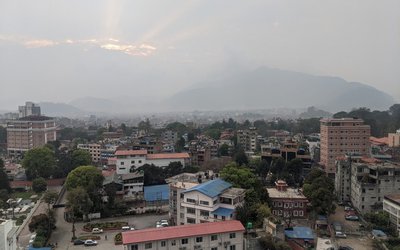Can we even imagine our life without plastic bags? Why is it a hassle when we use plastic products or grocery bags? These bags are cost-effective, easy to use and convenient to store.
We can figure out that large volumes of plastic bags have obvious overhead cost benefits for stores and their profit margins in comparison to paper or reusable cloth, linen, jute, hemp and other type of bags.
From the data available on Internet, we can see that numbers speak for themselves; when the US, a financially influential and, infrastructure-wise,a developed nation, has no limitation or criticism regarding the usage of plastic bags, why is the fuss here in Nepal? Some 100 billion Americans use plastic shopping bags annually (Environmental Protection Agency), whereas the American Forest and Paper Association estimates that 10 billion paper bags are used by Americans each year.
Why is there the denial for use of plasticbags in Nepal? Has government or related department even considered an alternative for unemployment that will arise out ofthe ban on the plastic bags or has it considered about those billions of rupees in investment made by industrialists in manufacturing plastics.
In my opinion,it is just a propaganda to ban plastic bags from the upcoming Nepali New Year Day which falls on 14 January 2015. It is astonishing that the government is likely to be involved in such a controversy involving plastic bags. The government should be more concerned about things like repairing the nation’s one and only International Airport, which became a shameful hot topic when it was removing a grounded plane from the tarmac. Till today,no country has practically been able to ban the usage of plastic bags, which are more durable than paper bags, they are less prone to tearing, easier to carry and far more useful in the rainy season.
Let me give an example here.During our shopping, all of us tend to ask the shopkeepers, “Dai/didi,eutajholadinusna.” What does that mean? We are used to plastic bags, how can we even relate life without plastic bags?Whatever be the tactics of the government and related agencies to ban plastic bags, this practice of using these cheap, light, easy and handy bags will not come to a complete halt.
If the government banned plastic bags, retailers will import these from the adjoining countries as they are cheaper in comparison to paper and other bags. The cost of importing plastic bags from China and India will have gone when outplastic bag industries shut down. Isn’t that something really upsetting? A fraction of GDP of Nepal, whichcomes from plastic bag industries, will be gone. Who will be responsible for that?
There are several important ecological advantages of plastic grocery bags over paper shopping bags, because they weigh so much less, they contribute for less solid waste to landfills when not recycled. According to the EPA, paper bag production requires 40% more energy than the production of plastic bags, paper bag manufacturing also results in 50% more water pollution and 70% more air pollution than manufacturing of plastic bags.
There is an outcry going on about imposing the ban on plastic bags whereas Plastic Manufacturers are strenuously rivaling it.
It seems someNGO’s/ INGO’s are concerned in banning plastic bags claiming it will helpenvironment. Have they realized what public will use from the date the plastic bags are banned? Are there cost-effective there are seve
The public should understand that banning of plastic bags is not practical although the government insists on it.
Let me also make it clear that people are under the wrong impression that plastic products lead to cancer. Do we care that even the toothbrush we use inside our mouth every morning is made of plastic materials?
It is just a frame of mind and baseless point to insist on banning plastic bags.The public needs to oppose the government decision if it has no practical alternative.
If the government isso much worried about the health of the public, then why are those more than 20-year old vehicles on the roademitting air pollution?Or let’s switch on towards the tobacco products. Aren’t these things more detrimental to the public health?
It is not that plastic bag industries aren’t paying the tax.They are one of the high taxpayers to the government. Hence, the government should have no problem if the thicknesses of plastic bags is more than 30 microns. Indeed after taking taxes from plastic bag industries, the government should be responsible enough for creating a proper waste management system, instead of banning the plastic carry bags. For that responsible division must consider:
- Proper sanitization
- Cleanliness of the Kathmandu valley
- Proper transportation emission control
- Proper canalization of polluted rivers
- Proper anti dumping policies
- If concerned about soil pollution and water pollution, fertilizers are shoddier agents than plastics. So, forbid fertilizers before even thinking about plastic bags.
Therefore, as we are aware that daily 4.7 million plastic bags are used within Kathmandu valley,we should ask a question: has the government even thought about what will happen if plastic bags are banned?
Government being a decision maker should first thoroughly research on alternatives to plastic bags, but before that happens, proper management of plastic bags industries is a must.

















